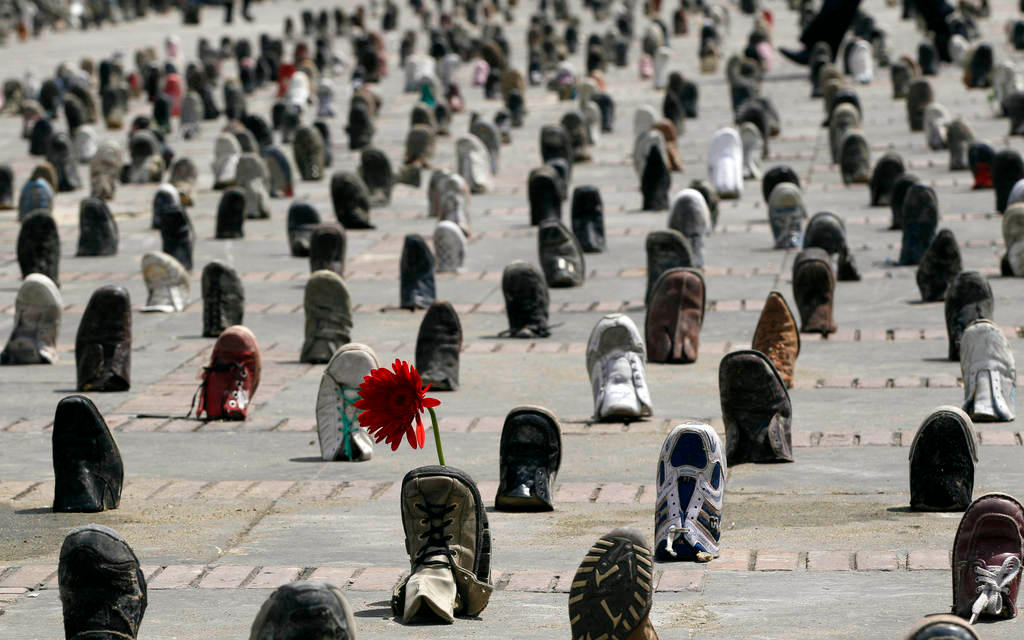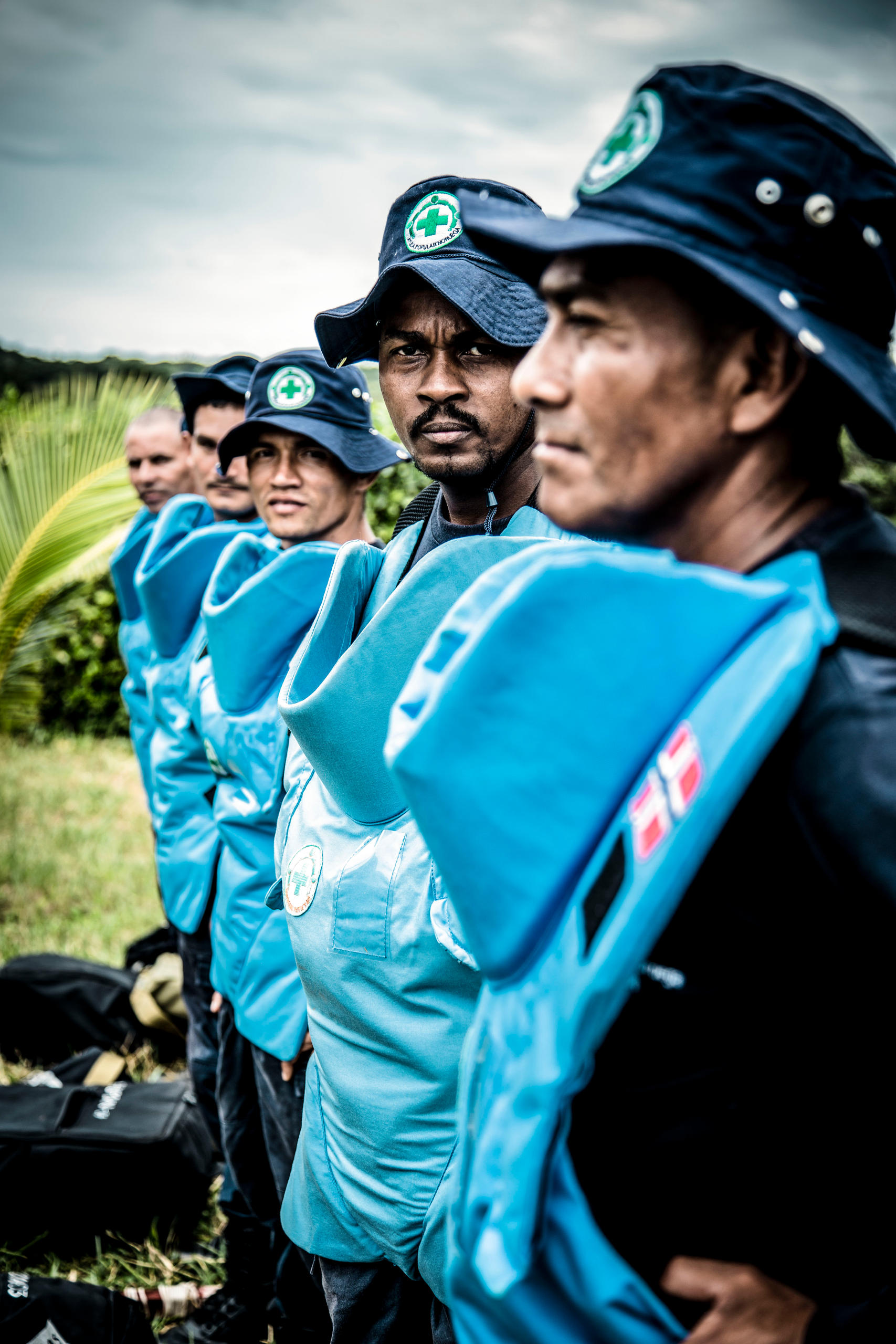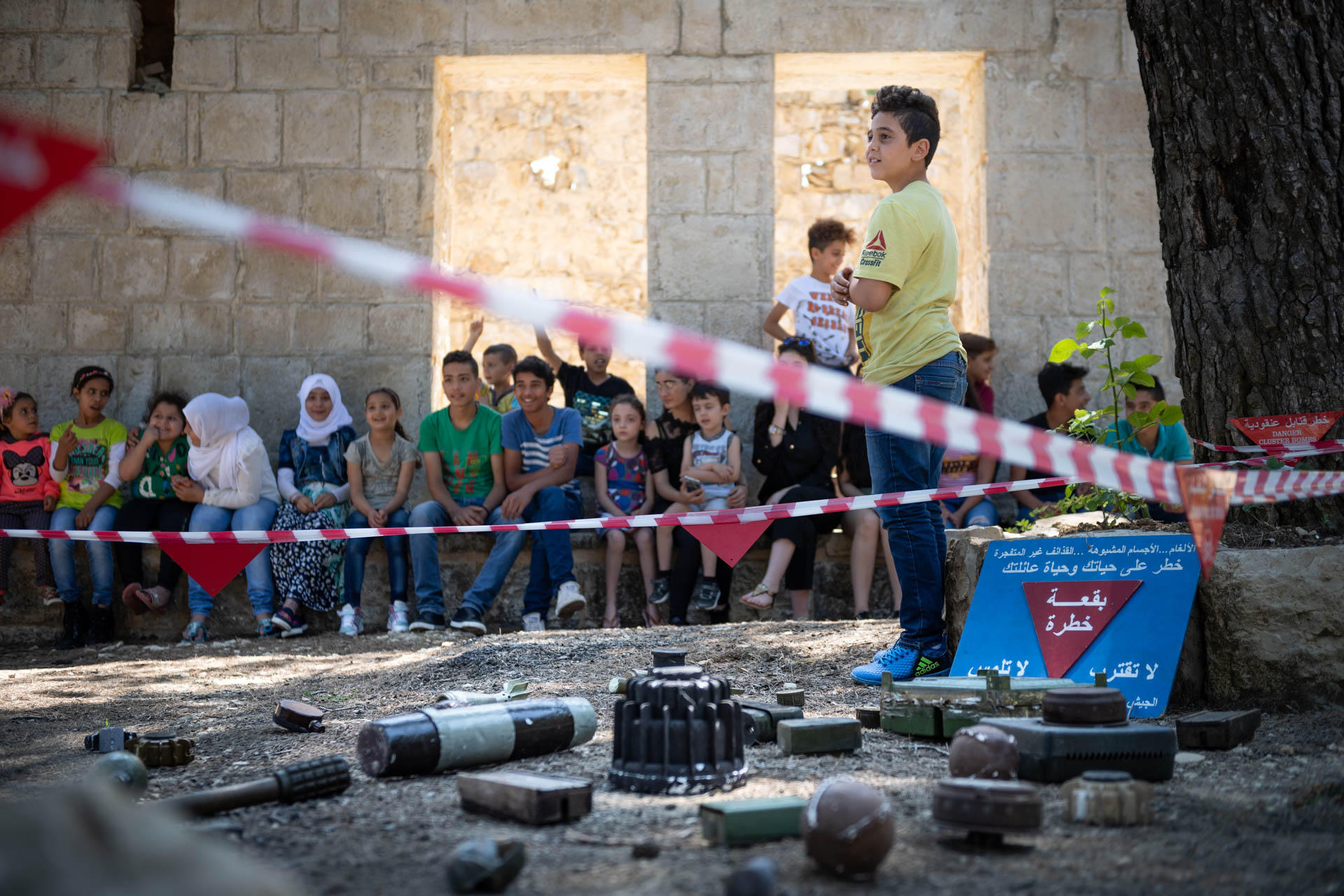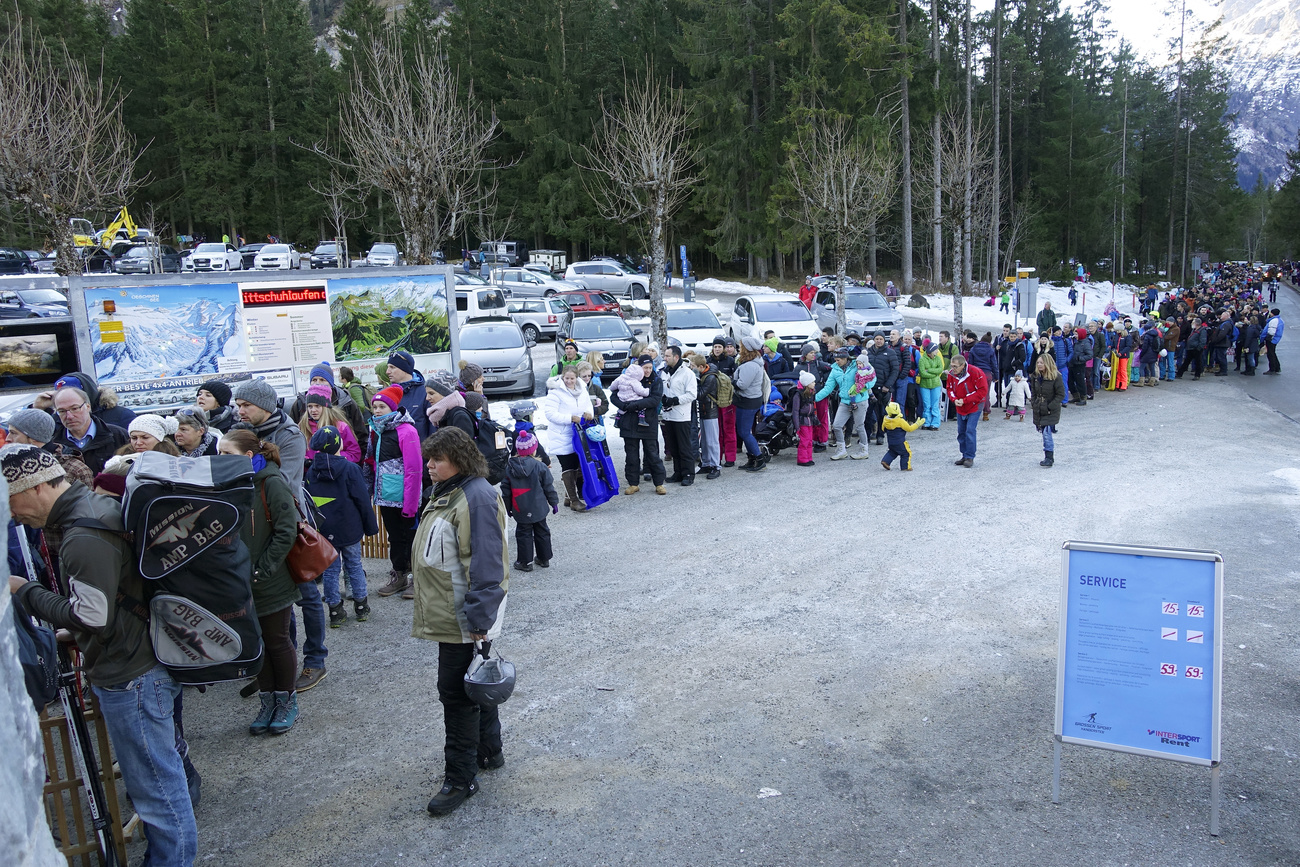Switzerland wages war on landmines

In the international battleExternal link against landmines, Switzerland invests millions per year, making it a key donor. Half of this money is channelled through the Geneva International Centre for Humanitarian Demining,External link (GICHD).
To mark Mine Awareness Day on April 4, the organisation is staging a multimedia exhibitionExternal link to “give mine action a human face”, according to GICHD’s media relations chief, Andrea von Siebenthal. It’s this theme that the organisation has focused on in a video on the exhibition.

More
‘Life of Mine’
The photos and videos on display in Geneva until May 5 focuses on the people affected by explosive hazards and those who dedicate their lives to eliminating them. The exhibition will also be shown in over 15 Swiss Embassies around the world over the coming months.
Landmines today
Landmines can be divided into two types: anti-personnel and anti-vehicle. They are designed to injure or kill people and can lie dormant for years or even decades under or on the ground until a person or animal triggers them.
According to figures from November 2018, 56 states and four other areas still have a problem with antipersonnel mines on their land. These explosives are prohibited under the Mine Ban Convention adopted in 1997, which more than 160 countries signed, including SwitzerlandExternal link.
High numbers of casualties continued to be recorded in 2017, with at least 7,239 people killed or injured by landmines as well as unexploded cluster submunitions and other explosive remnants of war. The Landmine MonitorExternal link from 2018 states that many will have gone unrecorded too.

Switzerland’s demining contribution
In 2018, Switzerland spentExternal link CHF18.4 million ($18.45 million) on humanitarian demining, or the removal of mines. It supported projects in different countries including Bosnia and Herzegovina, Cambodia, Colombia, Croatia, Myanmar and Syria, and 12 experts from the Swiss Army were deployed in demining programmes. All in all, GICHD receives funding from 30 governments and organisations; the Swiss contribution makes up about 60% of the organisation’s total budget.
Switzerland also ratified the Convention on Cluster Munitions in July 2012, which committed it to destroying its own stockpile by the end of 2020. The last of these projectiles was disposed of last year.

In compliance with the JTI standards
More: SWI swissinfo.ch certified by the Journalism Trust Initiative










You can find an overview of ongoing debates with our journalists here . Please join us!
If you want to start a conversation about a topic raised in this article or want to report factual errors, email us at english@swissinfo.ch.